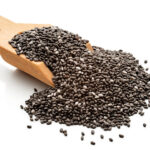
If you’ve considered turning your passion for food, fitness, and vitality into a full-fledged profession, you’ve probably come across the words nutritionist and dietitian. You may have also heard them referred to as the same thing.
But are they on the same career course or on entirely different ones? Discover the four main distinctions between a Dieticians and Nutritionist.
What exactly a Dietician do?
A dietitian is a board-certified food and nutrition expert in India and many other countries. They have advanced degrees in nutrition and dietetics, which is the study of food, nutrition, and its effects on human health.
Dietitians gain the skills to offer evidence-based medical nutrition therapy and nutritional counseling customized to an individual’s needs through rigorous preparation.
Dieticians and Nutritionist will work in a variety of environments, such as hospitals, outpatient clinics, research centers, and local communities, to name a few.
What Does a Nutritionist do?
Although their educational history closely resembles that of a dietitian, people in some countries may translate their title as “nutritionist” rather than “dietitian.”
In the India, the term “nutritionist” may refer to people with a wide variety of nutrition qualifications and experience.
Differences Between Dieticians and Nutritionist
#1. Dietitians work with healthy and sick people while nutritionists are limited to healthy individuals only
Dietitians are qualified practitioners who use medical diet counseling to support dietary well-being and treat medical conditions. They also consult with people who have been diagnosed with chronic diseases and recommend dietary changes. A dietitian, for example, can create a detailed meal plan for someone with diabetes, high cholesterol, or obesity to help them better control their condition.
Nutritionists, on the other hand, promote good eating habits and a well-balanced lifestyle. They do not provide medical care to people who are sick (e.g. diabetics, people with high blood pressure). Instead, they only deal with healthy people who want to change their diet and overall health.
#2. The term “dietitian” is regulated while “nutritionist” is not
Dietitians are highly regulated in many parts of the world, and in order to call yourself a dietitian, you must meet specific professional standards and register with the appropriate body. Before you can practice as a dietitian, you may need to pass an exam and obtain a license. This is due to the fact that dietetics is a medical and diagnostic area (it identifies illnesses and diseases).
Nutritionists, on the other hand, are often unregulated by statute, and anyone may call themselves a nutritionist. It may be difficult to differentiate between those who are properly qualified and those who are self-taught or lack legitimate qualifications as a result of this. As a result, several countries have implemented the term “registered nutritionist”, where those with a recognised degree in nutrition science can register with nutrition associations.
#3. Both study similar subjects at the start but deviate towards the later part of the degree
At first, nutrition and dietetics courses have a common curricular structure. You’ll start with the fundamentals of biology and food in both programs, with modules like anatomy and physiology, genetics, microbiology, food science, and food preparation.
Health students can learn more about nutrition modules in later years, such as nutrition program preparation and evaluation, nutrition education and promotion, and nutrition for sports and physical activity.
Dietetics students, on the other hand, study medical subjects including clinical biochemistry, medical nutrition therapy, and therapeutic diet planning. Dietetics students must also complete an internship.
Dietetics students, on the other hand, study medical subjects including clinical biochemistry, medical nutrition therapy, and therapeutic diet planning. Dietetics students may also complete three different forms of industrial placements: one academic, one group dietetics, and one relevant to food service.
#4. Dietitians and Nutritionists work in different workplaces
Dietitians and nutritionists both play a similar role in promoting healthy nutrition and wellness, but they operate in very different environments.
Dietitians typically operate in medical facilities such as hospitals and health centers, where they perform nutritional tests and recommend dietary modifications to help patients better control and treat their illnesses. Their responsibilities can sometimes extend to hospitals, insurance companies, and other aspects of the healthcare industry.
Nutritionists, on the other hand, are often found in commercial environments such as health and wellness centers and nutritional supplement providers, where they offer dietary consultations and meal plans to customers. Health food restaurants and large businesses with in-house cafeterias where nutritionists create nutritious food menus are examples of other workplaces. They can also work with government agencies to educate the general public about the benefits of living a healthy lifestyle.
Conclusion
So there you have it: four main distinctions between a nutritionist and a dietitian. Despite the fact that these two occupations can operate in similar sectors, they are equipped with different skills. We hope that this breakdown of the distinctions between the two careers helps you figure out which one is the best fit for you.



